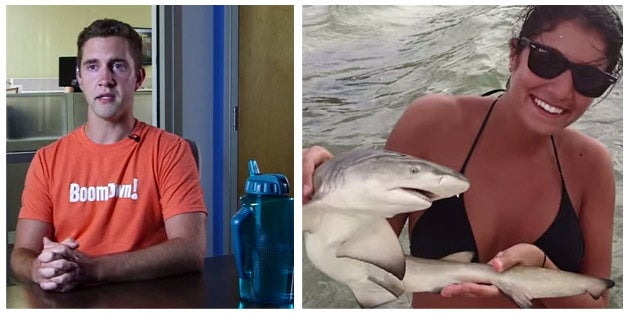If you’re a college student preparing for the job market, you already know this: internship experience is vital. Serving an internship is one of the most effective ways of developing new skills and learning about workplace expectations. It’s also an important key to distinguishing yourself from other job seekers and one of the best means of cultivating useful contacts. But how do students make the right connections to find internships that will genuinely enhance their employment chances?
Meet business administration graduate Will Munce ’12, a talent coordinator at Boomtown in Charleston. (Boomtown specializes in marketing software for real estate agents and brokers.) Will’s internship story is typical. “I was in an e-tourism class and Boomtown’s digital marketing director came in as a guest lecturer,” explains Munce. “He gave a great talk on search engine optimization, and after class I went up and introduced myself and got his card. The following spring, when I was looking for internships, I shot him an email and he invited me in for an interview. After a couple of those, I landed a summer internship, and that led to the job that I have now with Boomtown.”
Persistence, says marine biology major Caroline Shabo, is what really pays off when seeking internship opportunities. “I got the internship with Reef Relief in Key West, Fla., by excessively emailing people in the field,” says Caroline. “During the spring, I emailed several people with Ocean Conservancy in Washington, D.C. They didn’t have a position open, but that did lead to a conversation with a woman there and she liked me. So, when the internship at Reef Relief was posted online, she saw that and emailed me about it. Because I had studied abroad the semester before in the Turks and Caicos Islands and worked with sharks then, the Reef Relief people saw me as a good candidate for the internship, and it all came together.”
WATCH: Caroline Shambo swims with sharks.
Often, students land internships indirectly. Urban studies major Sarah Somes was taking a course in hospitality and tourism management when the professor told the class about his role within a task force organized by Charleston’s mayor. Sarah approached him after class and asked if she could attend one of the task force’s monthly meetings.
“I attended about three or four of the meetings and met a number of important people from the mayor to the police chief to the director of the city’s planning office. And after talking and meeting with the director a few times, he connected me with one of his department heads who agreed to develop an internship role for me. That person committed to making it a well-rounded experience, and said that he would try to get me involved in as many different aspects of city planning as possible. Ultimately, I had access to meetings and luncheons with all sorts of successful business types in Charleston. It was an incredible experience. In the first week of my internship, I realized that I could come away with a full page of life skills. It turned out to be an opportunity for exponential growth.”
Of course, you can also arrange a for-credit internship, which is what communication major Erin Smith did when she focused on learning art design with Charleston Magazine. Smith got permission to pursue this idea from her advisor and then arranged the internship with the magazine’s editorial staff. “The magazine has had a fair number of student interns from the College over the years. Ultimately, it provided me the opportunity to work on design and get glimpses of how marketing and publicity are pivotal in that field.”
EXPLORE: Internship advice from the Career Center
Internships can help you build a career. Just ask Ian Wheeler, a 2005 graduate who majored in communication. As a college student, he managed to convince the editor at Charleston’s alternative weekly – the Charleston City Paper – to let him write about the Charleston music scene. “That led to the opportunity to write for some other publications as well,” says Wheeler. “And about the same time, I started managing bands, which put me in touch with the Charleston Jazz Initiative. I did a semester-long internship with that organization, and it set the scene for the work that I do now with my own record labels and two other businesses that I own in New York.”
There are many ways to get internships, but perhaps the most important advice that College of Charleston students offer is simply to put yourself out there. “You’ve got to be willing to be persistent and utilize all the contacts available to you,” says history major Clerc Cooper, who took an education course that led to an internship that ultimately developed into an independent study which resulted in her presenting at an academic conference and contributing to a chapter in a soon-to-be-published book. “You never know where your initiative can take you.”










